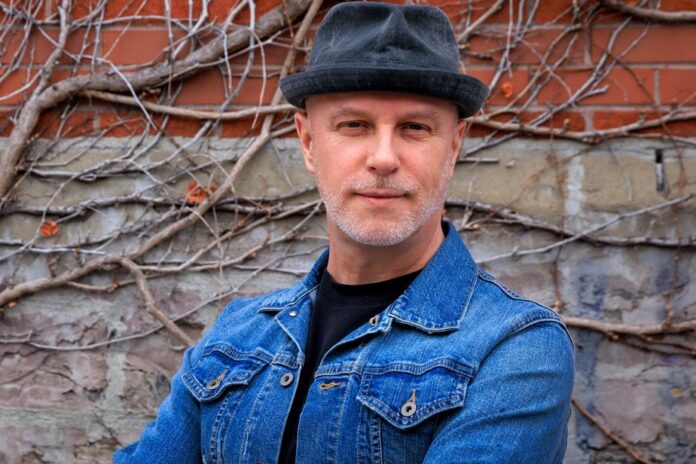Writing, with Olivier Bodart, was born from his personal earthquakes. From his frequent moves over the last decade, but also from his wanderings on the American continent which finally landed this Parisian of origin and visual artist by training… in Montreal.
In his second novel, After Me the Desert, Olivier Bodart recounts his settling, after a painful divorce, in the Sonoran Desert, California, with the intention of founding a small school of photography with his new partner. But she is slow to join him, his divorce dragging on, and he finds himself alone, in the first weeks of the pandemic, to contemplate all his projects collapsing like a sandcastle.
“Everything that is said at the beginning of the novel is totally real”, confides Olivier Bodart, met in a Montreal café.
“When we met in Chicago, my partner, who is a photographer, was going through pretty much the same story as me with her ex-husband. We said to ourselves: this city is too marked by our failed marriage, let’s choose a place on the map that excites us and create a project that is ours. »
Then everything was put on hold because of this mysterious “germ” he mentions in the novel. What happens next is a mixture of the real and the fantastic. “We had real financial setbacks, the coronavirus really happened,” he laughs. But in his solitude, in the middle of the desert, his romantic alter ego begins to suffer from strange olfactory hallucinations. Then, unable to remain confined, he begins to drive on deserted highways, where curious visions appear to him.
On his way, while he is haunted by the idea of finding a place where he could take up residence – at least temporarily – he comes across cities erected in the middle of nowhere: Slab City, “a kind of camp, a bit of a dump, people left behind”; or even Felicity, this community “completely invented from scratch by a Frenchman, only for two people”, he says.
After this parenthesis in the desert and another in Los Angeles, Olivier Bodart and his partner feel the need to reinvent themselves. “And that’s not in the book anymore, but it was ultimately about creating our American anti-dream, which is to say to ourselves, ‘Enough, the United States, we’ve been too shaken.” And it was mostly my girlfriend – she’s Canadian – who said this: ‘I’m tired, I want to go back to my country. »
So they pulled out their map, expanding it to include Canada, looking for a place where they could catch their breath. “We counted our rooms and looked at where the cheapest place to live in Canada was; it was Prince Edward Island. I didn’t even know! »
Determined, they bought a house online, rented a U-Haul truck and hit the road. They reached the Maine-Canada border 13 days later, on March 10, 2021 – in the midst of a pandemic – when entry was prohibited for foreigners. “I wasn’t sure if I would be accepted in Canada, so we built a thick file like that to explain that we had been together for two years,” he explains.
Luckily, he obtained permission to go to their house in Prince Edward Island, with a ban on stopping in New Brunswick. “It was quite a magical and quite euphoric moment,” says Olivier Bodart – especially since his first novel, Zones à risque, appeared the same day in France.
It was during this transitional year that he wrote After Me the Desert, accompanying the writing of plastic works, as for the previous one. Since moving to Montreal with his partner last summer, he has found a job – he teaches visual arts at Jean-de-Brébeuf College. “We bought an apartment, it’s still a sign that we will stay a while. Now I have learned never to think definitively; I’ve been told sometimes that I’m on the move, that I’m unstable – that’s for the negative side. Those who see it differently tell me that I am adventurous, that I like experiments. But maybe my place in this world is in movement,” he says thoughtfully.















